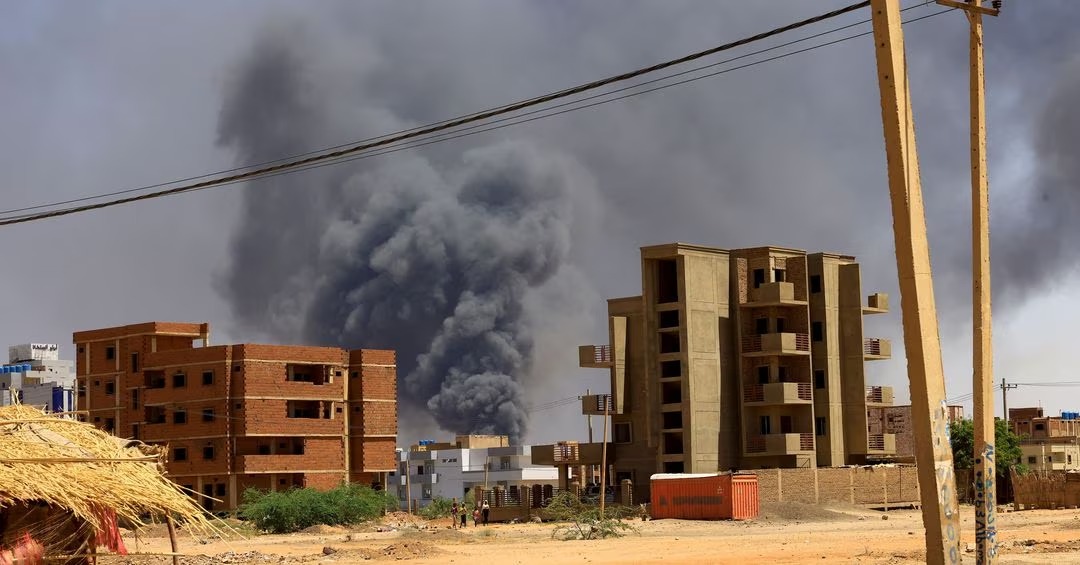In a significant move aimed at curbing ongoing human rights violations and violence in Sudan, the United States has imposed sanctions on high-ranking leaders within the Rapid Support Forces (RSF). Washington accuses the paramilitary group’s deputy commander, Abdelrahim Dagalo, and the RSF’s top general in West Darfur, Abdul Rahman Juma, of committing extensive human rights abuses during the months-long conflict with the Sudanese military. These sanctions represent a crucial step in the international effort to address the crisis in Sudan and bring about a peaceful resolution to the conflict.
Washington Takes Action Against RSF Leadership
The US Treasury Department announced the sanctions on Wednesday, targeting Abdelrahim Dagalo and imposing asset freezes on his holdings within the United States. Simultaneously, the State Department has imposed visa restrictions on Abdul Rahman Juma. These measures mark the most direct US sanctions against senior RSF leaders since the conflict erupted in Sudan earlier this year.
US Secretary of State Antony Blinken emphasized the United States’ commitment to deterring actions that prolong the war and undermine the Sudanese people’s quest for peace and civilian, democratic rule. He stated, “We will not hesitate to use the tools at our disposal to hinder the ability of the RSF and Sudanese Armed Forces (SAF) to further prolong this war, and we will also use such tools to deter any actor from undermining the Sudanese people’s aspiration for peace and civilian, democratic rule.”
Ongoing Conflict and Humanitarian Crisis in Sudan
The conflict in Sudan, which has been ongoing since mid-April, has resulted in thousands of casualties and displaced more than four million people, prompting warnings from the United Nations about a “humanitarian emergency of epic proportions.” Despite efforts to mediate the conflict by the US and Saudi Arabia, ceasefires have been short-lived, and civilians continue to suffer amid the ongoing hostilities.
Moreover, the crisis has led to ethnically targeted attacks against non-Arab communities in the western region of Darfur, which human rights groups attribute to the RSF and its allies. The US Treasury Department stated, “Since the beginning of the conflict between the RSF and Sudanese Armed Forces on April 15, 2023, both sides have failed to implement a ceasefire, and the RSF and allied militias have been credibly accused of extensive human rights abuses in Darfur and elsewhere.”
US Pushes for Peace Amidst Rising Tensions
The United States has made it clear that its primary objective in Sudan is to reduce violence and facilitate a permanent end to the fighting, ultimately paving the way for a return to civilian rule. In June, Washington took action by sanctioning companies controlled by RSF chief Mohamed Hamdan “Hemedti” Dagalo and two defense firms associated with the military, as part of its commitment to this goal.
Secretary Blinken called upon all parties involved to uphold their obligations under international humanitarian law, ensuring the protection of civilians, holding those responsible for atrocities accountable, permitting unhindered humanitarian access, and engaging in negotiations to end the conflict.
The recent sanctions mark a significant development in the international response to the Sudanese crisis, aiming to hold perpetrators of human rights abuses accountable and provide hope for a peaceful and democratic future for the people of Sudan. This move also underscores the complex nature of Sudan’s political landscape, where a struggle for power and influence continues to disrupt the path to stability and democracy.
















